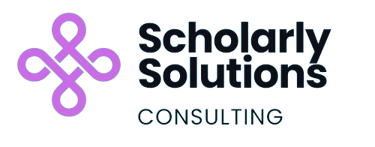Nurse as a Knowledge Worker
Nurse as Knowledge Worker - encompasses integrating data, technology, and continuous learning.
Vane Gichana
8/31/20241 min read


Nurse as a Knowledge Worker: The Heart of Modern Healthcare
In today's healthcare landscape, the nurse's role has evolved far beyond the traditional view of bedside care. Nurses are now recognized as critical knowledge workers, a concept that emphasizes their pivotal role in processing, applying, and generating knowledge to enhance patient outcomes.
Drucker (1999) defines a knowledge worker as someone whose primary job involves handling or using information. Nurses fit this definition perfectly. They constantly assess, analyze, and act upon vast amounts of data—from patient histories and lab results to real-time monitoring and emerging clinical research. This information is synthesized to make informed decisions, ensure patient safety, and improve care quality.
In the era of electronic health records (EHRs), nurses are at the forefront of using technology to manage patient information. They input and interpret data, identifying trends, making connections, and alerting other healthcare professionals to potential issues. Their ability to transform raw data into actionable insights is essential, where timely, informed decisions can mean the difference between life and death.
Moreover, nurses contribute to knowledge creation through research and evidence-based practice. They participate in clinical trials, continue education, and implement new care protocols grounded in the latest scientific findings. This constant engagement with knowledge ensures that the care provided is up-to-date and effective, reflecting the latest advancements in medical science.
The nurse embodies clinical expertise, critical thinking, and technological adeptness as a knowledge worker. This role is crucial in driving healthcare innovation, ensuring that care delivery is both patient-centered and data-driven. In recognizing nurses as knowledge workers, we acknowledge their indispensable contribution to the healthcare system, not just as caregivers but as key players in advancing medical knowledge and practice.
Drucker, P. F. (1999). Management Challenges for the 21st Century. Harper Business.
vgichana@scholarlysolutionsconsulting.com
At Scholarly Solutions Consulting, we transform healthcare organizations through expert guidance in regulatory compliance, quality improvement, and workforce development. Our commitment to excellence and innovation leads to enhanced patient care, efficient clinical practices, and sustainable growth in the healthcare sector. Partner with us to elevate your organization's standards and outcomes, ensuring a healthier future for all.
612 423 2891
scholarlysolutionsconsulting.com


